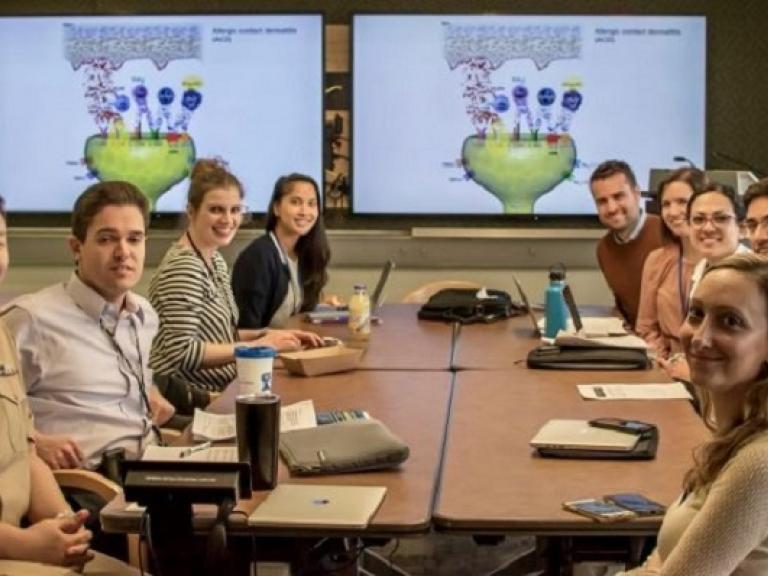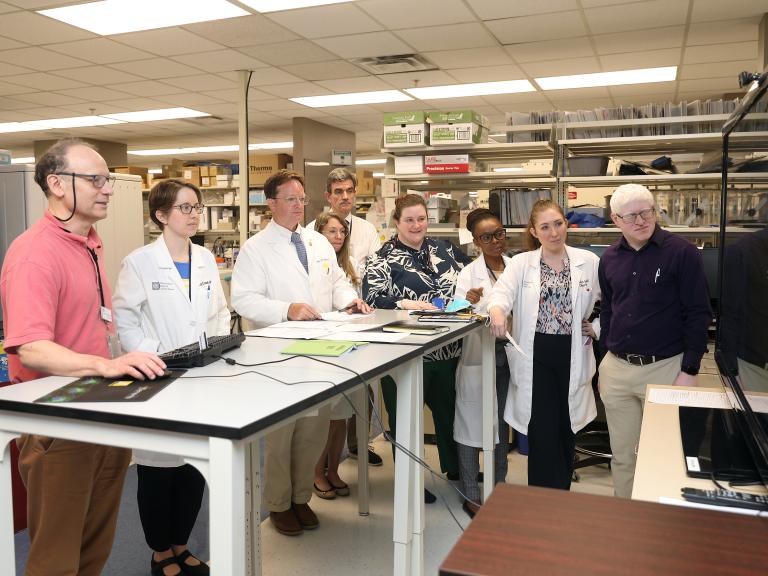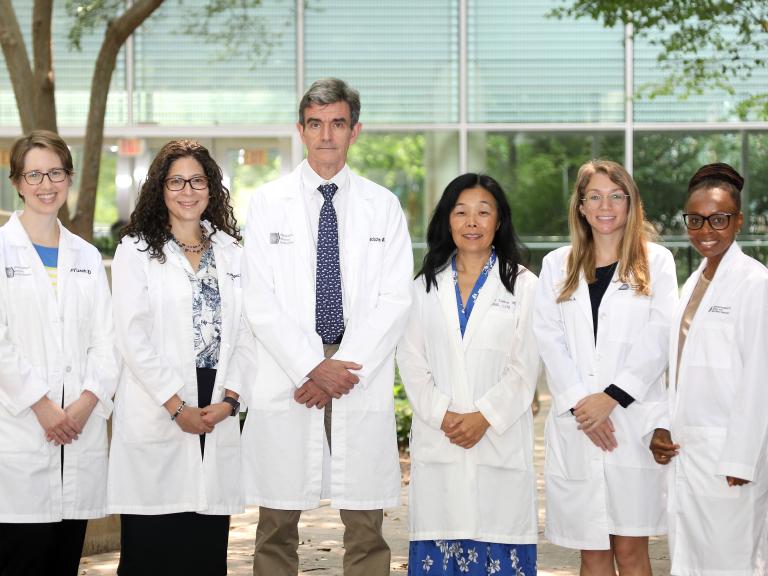Why Train at NIAID?
Clinical research trainees at NIAID engage in advanced basic, translational, and clinical research resulting in the translation of laboratory discoveries into novel therapies, diagnostics, vaccines, and medical countermeasures to prevent and treat infectious, immune-mediated, and allergic diseases.
NIAID intramural researchers conduct more than 180 clinical trials at the NIH Clinical Center on the Bethesda, Maryland, campus and at collaborating U.S. and international sites. The NIH Clinical Center is the world’s largest clinical research hospital offering unparalleled resources and opportunities to conduct clinical studies. The NIH Clinical Center includes 200 inpatient beds and 93-day hospital stations, as well as 15 outpatient clinics. All patients admitted or seen at the NIH Clinical Center are enrolled on research protocols.
NIAID Research Training Opportunities for Clinical Fellows

Allergy and Immunology Fellowship Program
This 3 year program, open to physicians who have completed internal medicine and/or pediatric residency training, is designed to provide high-quality clinical and research skills.

Infectious Diseases Clinical Fellowship Program
NIAID is looking for highly qualified internal medicine and medicine-pediatric trained residents for Infectious Diseases internal medicine and medicine-pediatric fellowship.

Transplant Infectious Disease Fellowship Program
This 13-month clinical fellowship is fully funded and includes collaboration with experts across major transplant institutions.
Transition Program in Clinical Research
The Transition Program in Clinical Research provides opportunities for physicians to gain clinical and translational research experience in association with a Division of Intramural Research (DIR) laboratory. Applicants must have an M.D. or an M.D./Ph.D.; be board-eligible or board-certified in a subspecialty (or equivalent); and qualify for credentialing from the National Institutes of Health Clinical Center.
Other NIAID Research Training Opportunities
Not all positions in the intramural training programs listed below will be in “clinical research” labs. Clinical research encompasses all research in which people, or data/samples of tissue from people, are studied to understand health and disease.
Graduate students, postbacs, and summer interns working in labs at the NIH that conduct clinical research typically have administrative and/or benchwork roles for ongoing projects in the lab. Administrative tasks directly related to clinical research may include entering patient data into databases, scheduling appointments, preparing and mailing kits for ongoing protocols, etc., whereas benchwork roles may include processing patient samples, genome sequencing, in vitro assays, flow cytometry, etc. In practice, the benchwork in “clinical” labs will look very similar to the bench research being conducted in basic and translational research labs.
Programs for Current Medical Students (M.D. and M.D./Ph.D.)
- NIH Summer Internship Program (SIP)
- NIH Medical Research Scholars Program (MRSP)
- The NIH MD/PhD Partnership Training Program
Programs for Pre-Medical Students
Contact Information
For specific questions, contact the specific fellowship contacts or NIAIDTraining@nih.gov

